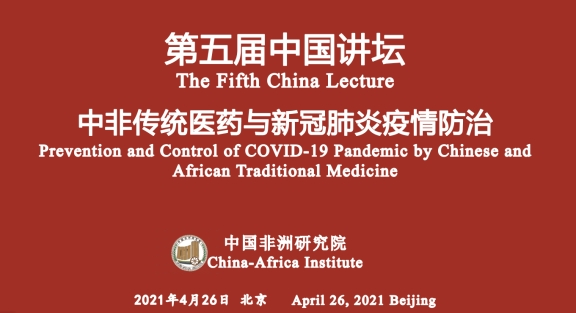
On April 26, 2021, “The 5th China Lecture:Prevention and Control of COVID-19 Pandemic by Chinese and African Traditional Medicine” was held both offline and online. The main venue of the lecture was set up at the China-Africa Institute(CAI). Li Xinfeng, the Executive President of the CAI, and Director General of IWAAS made the openning remarks. Dr. Diarra from the Republic of Mali and now working at Chengdu Xindu District Traditional Chinese Medicine Hospital and Dr. Wang Yunping from the Health Strategy and Global Health Research Department of the National Health Commission's Health Development Research Center delivered keynote speeches successively.More than 80 guests attended the lecture, including scholars from the CAI, African students from China University of Geosciences (Wuhan), members of the China-Africa Youth Federation, and experts and scholars from Kenya, Benin, Zimbabwe, Sierra Leone, Uganda, Cameroon and other African countries. . Wang Xiaoming, Vice President of the CAI and Deputy Director of the IWAAS presided over the lecture. The branch venues was set up in the China-Africa Youth Federation and China University of Geosciences (Wuhan).
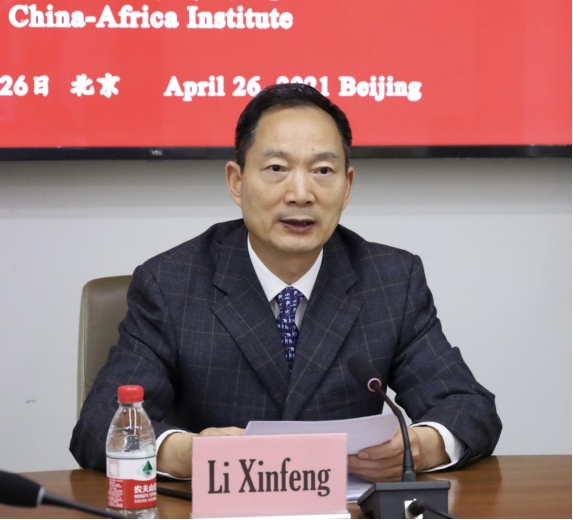
Professor Li Xinfeng
Li Xinfeng pointed out in his openning remarks, China and Africa are cradles of ancient civilizations in the world, and both parties have made enormous contribution to the common development and prosperity of all mankind. In their glorious and splendid history of civilizations, Chinese and Africa traditional medicine has been playing a crucial role to protect peoples’ health and life. The voluminous medical literature of China and diversified traditional customs of Africa have embodied wisdom of methodological exploration and innovation of clinical diagnosis and treatment on many common diseases, which should not be neglected as the precious wealth of human medical progress. In the dauntless and persistent anti-pandemic campaign of the Chinese people, traditional Chinese medicine greatly helped patients recover from novel coronavirus infection. At the same time, to explore the potential value regarding anti-pandemic from their own traditional medicine is also gradually becoming a concern of African societies. China has been stay committed to upholding international cooperation to fight against the pandemic since its outbreak. In his keynote speech at the BRICS Summit in 2020, H.E. Chinese President Xi Jinping called on the five parties to hold symposium on traditional medicine to explore its role in coronavirus prevention and treatment. In his keynote speech at the 2021 Bo’ao Forum for Asia, President Xi also pointed out that China will make contribution to global health governance through cooperation on pandemic prevention and control, public health, and traditional medicine. Thereby, mutual learning on traditional medicine between China and Africa would be an important step to ramp up the building of a stronger community with a shared future through exchanges of Chinese and Africa traditional cultures and cooperation of medical development.
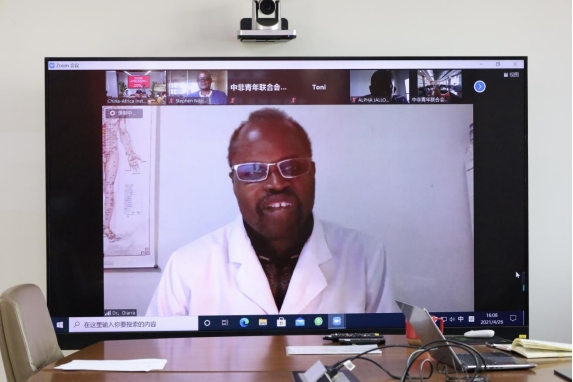
Dr. Diarra
Dr. Diarra is the first foreigner with PhD in Traditional Chinese medicine (TCM). He is vice chairman of the World Federation of TCM. In his speech, he shared his experience in Chinese medicine learning and treatment, and introduced TCM from the aspects of TCM culture, TCM treatment philosophy and characteristics, and advantages of TCM. He pointed out that TCM is based on the integration and harmony between Heaven, Earth, Human and Nature.It is a medical science with thousands of years of clinical experience on hundreds of millions of people instead of animals. The essence that reflects the cognitive style and rich values of the Chinese culture.
TCM has five major characteristics namely: personalized differentiation of treatment, prevention and treatment principles based on regulations to bring balance in the inner body, personalized treatment methods, diversified intervention means, natural drug. TCM also has six major advantages: relatively safe drug used, flexible service mode, relatively low cost, huge potential, very wide and promoting development. Dr. Diarra pointed out that botanical drug development has become a hot spot in the current global market. TCM is widely used in the first few high-demand health issues such as: sub-health, cardiovascular disease, tumors, aging, weight loss and bodybuilding and beauty. At present, 4 billion people in the world use Chinese herbal medicine products, accounting for 80 % of the total population. It can be said that the internationalization of TCM is facing opportunities and challenges. The external dissemination and exchange of Chinese medicine culture shoulders the historical mission of promoting Chinese culture to the world. It is also an important means to improve the country’s soft power and international influence. At the same time, it also needs to be more self-confident and compatible. In the process of merging with foreign medical culture, we constantly open up the new realm of traditional Chinese medicine culture.
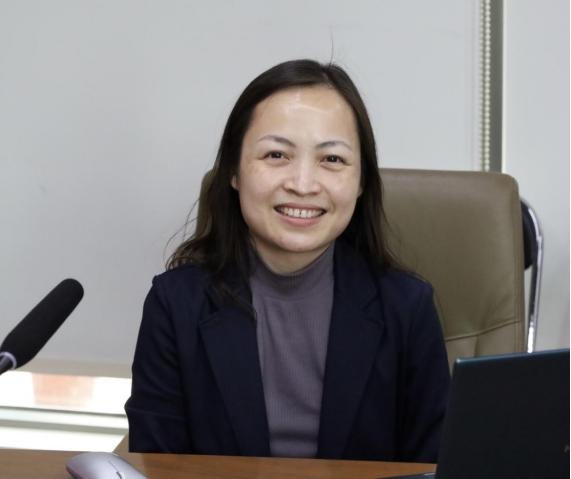
Dr. Wang Yunping
Dr. Wang Yunping from the Health Strategy and Global Health Research Department of the National Health Commission's Health Development Research Center pointed out that the COVID-19 pandemic has seriously damaged the health of African people and destructed the economic and social development of African countries. As the largest developing country and the first country to control the pandemic and resume economic development domestically, China has taken practical actions to implement the China-Africa community of health for all initiative and the Principles of China’s Africa policy --“Sincerity, Practical Results, Affinity and Good Faith”, including: dispatch public health and medical experts to Africa to provide technical support and medical supplies; support the construction of African Center for Disease Control and Prevention, and the collaboration mechanism between China and African counterpart hospitals; actively share the knowledge and experience and lessons in fighting against COVID-19 pandemic; and promote for the health interest of African countries in global health governance arenas. All these actions reflect China’s responsibility as a great power, and sublimate the friendship between China and Africa. At the same time, the pandemic reveals that African countries’ public health systems are still fragile, the medical systems are overloaded, the health systems still has serious defects, and the health resources are seriously insufficient, which makes it difficult to coordinate the actions to fight COVID-19 and promote the 2030 health sustainable development goals. However, the willingness and abilities of international development partners to shoulder on the responsibility of international development cooperation have declined. They attach importance to Africa strategically, but crowd out the interest of African countries in actions. Due to the path dependence and lack of capacities, there are limits on innovation of health cooperation between China and Africa. In the future, to deepen China Africa health cooperation, it should aim to construct China-Africa community of health for all, and target to promote African countries’ independent development ability and resilience of health systems, and make positive contributions to African and global public health security, and the health SDG progress by innovating the concept, content and formalities of health development assistance and cooperation.
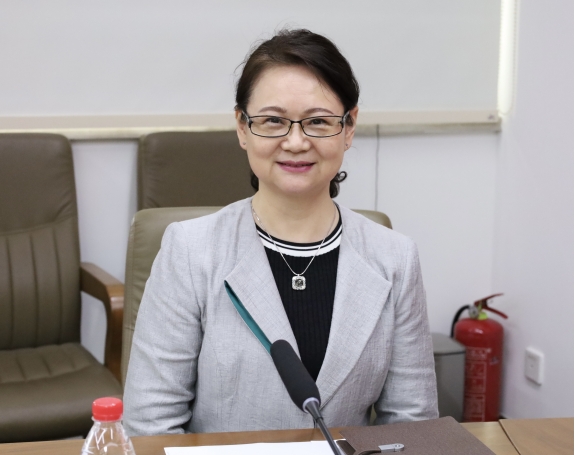
Professor Wang Xiaoming
The guests also interacted with TCM and the COVID-19 vaccine, the comparison of traditional Chinese and African medicine, and the construction of the African health system. Deputy Director General Wang Xiaoming pointed out in the final summary, it was really a productive lecture. We all benefited from it. The spread of COVID-19 pandemic is unprecedented, immediate and consequent challenges to people around the world. No one is an island, no one can escape. We all recognize the importance of public health issues to global peace and security and the well-being of people around the world especially China and African countries. We united together and jointly safeguard public health security and make greater contribution to the peace and development of our homeland, and to defeat COVID-19 and make a stronger China-Africa community with a shared future.
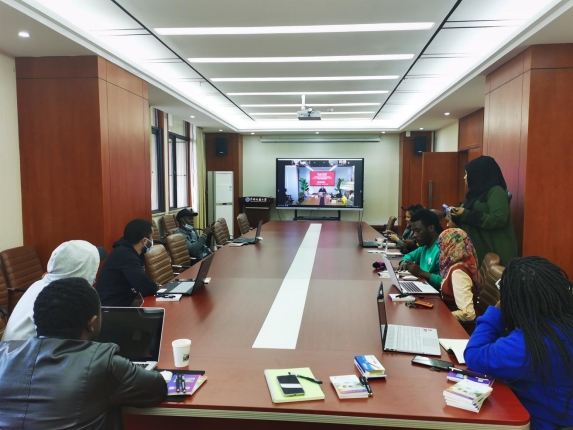
China University of Geosciences (Wuhan) Branch Venue

Beijing China-Africa Youth Federation Branch
Address : 1 North National Stadium Road, Chaoyang District, Beijing Post Code : 100007 Tel. : +86 10 87421055 Fax : +86 10 87421046 E-mail : P.O. Box 1120, Beijing
 China-Africa Institute
China-Africa Institute
 Journal of China- Africa Studies
Journal of China- Africa Studies
 West Asia and Africa
West Asia and Africa
